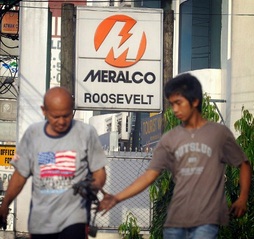Labor group joins anti-power rate hike protest
MANILA, Philippines—The Labor group NAGKAISA joined the chorus of voices denouncing a planned increase in electricity bills in the franchise area of the Manila Electric Co. (Meralco) due to higher generation charges.
In a statement, NAGKAISA said Meralco was already insured against maintenance shutdowns and power supply agreements. As such, the group said, an increase of P3.50 per kWh in the electricity bills of Meralco customers is “an unconscionable predatory move” in the face of calamities and price hikes that have already hit the nation.
The labor group criticized Meralco and its power suppliers for the hike. Power generation companies set the price of electricity supply, which Meralco then distributes in its franchise area. Meralco has said that it does not earn from generation charges, which are automatically passed on to consumers, since these go directly to power generation companies. Meralco’s earnings come from distribution charges, for which it seeks government approval before implementation.
“Meralco residential rates currently pegged at P12.46 per kWh will now be hiked to P15.96 per kWh, representing a 28 percent increase,” NAGKAISA said, adding that the new rate is too high for residential accounts.
For industry, where power rates already constitute 45 percent to 55 percent of operational costs, particularly for small and medium enterprises (SMEs) and outsourcing companies, the rate increase will greatly affect their business viability, the labor group said.
“For the national economy, it compromises our regional competitiveness in the ASEAN and will be a disincentive to locators remaining and to the entry of foreign direct investments,” NAGKAISA said.
The labor group essentially called for government to restore regulation in the energy sector to “ensure affordable power” — something which analysts have warned would result in artificially low prices that would drain the economy and later cause social unrest when government can no longer subsidize low rates.
On statements that the maintenance work on Malampaya is expected to make power generation firms use more expensive fuel (thus pushing power rates), NAGKAISA argued that Meralco should bear the loss since the maintenance was scheduled ahead of time and the cost impact should already have been factored into existing power supply agreements.
In case of a forced outage without the rate hike, NAGKAISA said, “Meralco and the power producers First Gas (Santa Rita), Therma Mobile (San Lorenzo) and SPPC (Ilijan) from which Meralco buys its power are insured against possible spikes in costs. Why is Meralco passing the burden to consumers when there is insurance for forced outages?”
NAGKAISA also said Malampaya provides only a certain percentage of the power needs of Meralco, which is why the impact of the natural gas field’s downtime should not reach as high as P3.50 per kWh.
The labor group criticized the Energy Regulatory Commission for not intervening in the anticipated rate increases of power generation firms.
NAGKAISA also criticized the government for not using the Malampaya fund to ease the impact of the maintenance shutdown.
“Why has the DOE (Department of Energy) – or the Palace for that matter – not addressed the possibility of resorting to the Malampaya fund to reduce rates and to cushion the impact if indeed there is a problem not anticipated in the power supply contracts entered into between Meralco and the generators?” NAGKAISA said.















